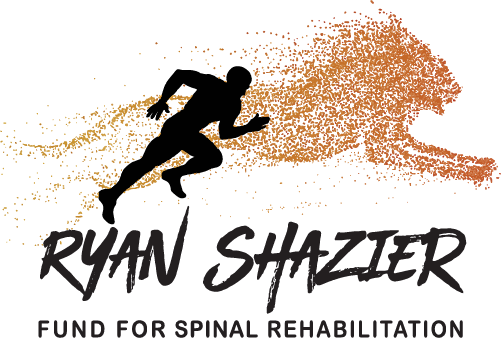As I got stronger and more improvisational, I also learned that the “caregiver” I thought I’d need was not as necessary as I once thought.
However, what is necessary for me and, I think, everyone in any situation is a “Cheer-Giver.”
I’ve always been independent–some, including my husband, have classified me as “too independent.”
“I can do it myself!” I remember telling my mother, and as the oldest of four stair-step children doing it myself became both a gift and a curse.
Imperfect Shift
So, when I found myself paralyzed, my biggest hurdle was, “How am I going to ask people to do things for me?” It was one of the most complex challenges, harder than the actual physical recovery, which I still partake.
God, my Guardian Angel and a talented surgeon, Dr. Mark Knaub at Hershey Medical Center, gave me back far more than any C3-C7 cervical spinal cord injured person could hope for–my paralysis is still there, though incomplete. Though imperfectly, I have use of all my limbs and secured a writing job with The Ryan Shazier Fund for Spinal Rehabilitation. As a former full-time writer, this was indeed a blessing.
Levels of Care
But I didn’t need people to be “caregivers” for me, no matter how well-intentioned. And the more I worked with the SCI community, I found a dichotomy–many people with paralysis do need caregivers.
And those caregivers are some of the unsung heroes in this world.
But others, like me, need help with some things, but we mostly need positive support and encouragement.
I call those people my “Cheer-givers.” They offer minimal care. My husband prepares my bed and water bottles for me at night and uses a therapeutic roller to “roll me out” from my knots and spasms.
My oldest son, though usually overseas, “gets me” because I want to do things independently.
On a recent trip home, he wouldn’t insist on doing something for me, but would say, “Hey, you need help with that?” Knowing there is someone cheerfully willing to help is usually all the “Cheer-Giving” it takes! Most times, I’d be ok, but when I took him up on his help it was easy-going and fun.
Unexpected Cheer
My friends have also figured it out, too, and have “Cheer-given” in ways that are unexpected and thoughtful.
For instance, a choir member built an intermediate stair so I have an easier time getting to my seat. The “atta girls” come randomly from family and friends and are the biggest “Cheer-givers.” “Hey, your leg looks great today!” “Did you do that on your own?” It’s when you don’t think anyone notices, that those snippets of encouragement can carry you through several days.
“Cheer-Givers” are Everywhere.
Before my injury, I was an accomplished jazz tenor sax and clarinet/flute player. I can’t play anymore, and it’s what I miss most. I sing tenor in our church choir and missed a few rehearsal sessions. I wasn’t feeling good, and mentally I was down.
Our choir director sent me a note asking about me and added that my voice, though a woman singing a tenor section, is missed because I can read the music and help the section.
That little bit of “cheer-giving” equated to much caregiving for me.
If you have a friend or relative who is injured and “seems” okay, chances are that deep down, they could use a healthy dose of authentic “cheer-giving.”


